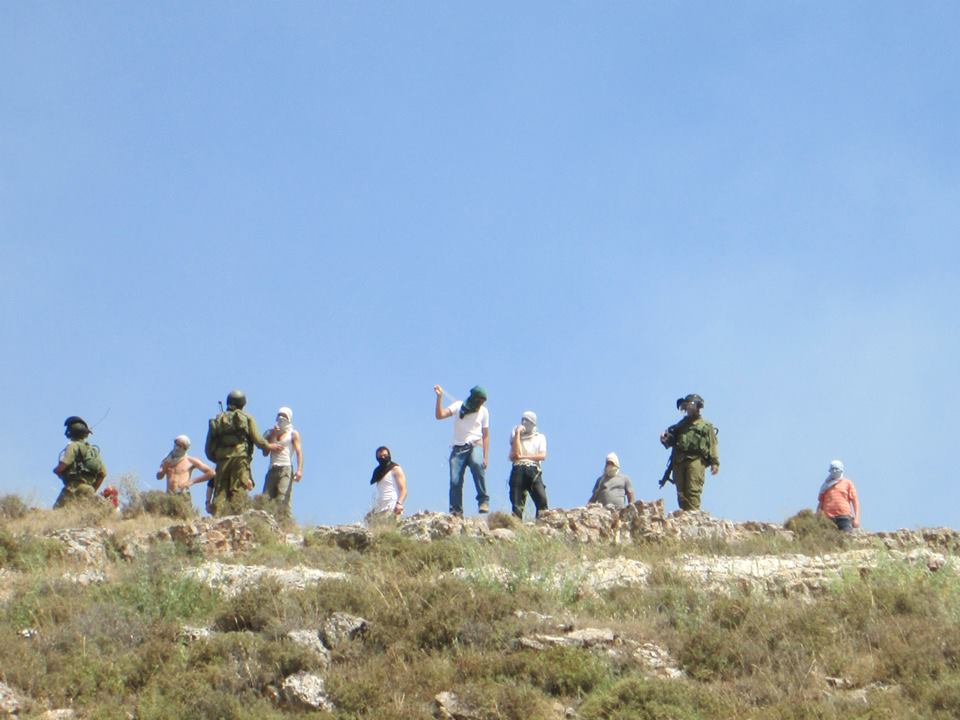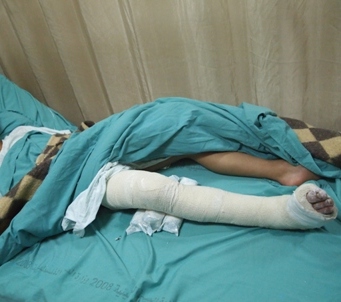Tag: Settler violence
-
A word of caution from settlers to internationals in Hebron
11th June 2013 | International Solidarity Movement, Khalil Team | Hebron, Occupied Palestine On the evening of Thursday, 6 June 2013, a fellow activist and I were walking home from an innocent venture to get a refrigerator door in the Prayers’ Road area of the H2 area of Hebron. My companion saw out of the…
-

Arson attack on Asira village by illegal settlement of Yitzhar
30th May 2013 | International Solidarity Movement, Nablus Team | Asira, Occupied Palestine At 1.30pm today, 30th May, thirty settlers from the illegal settlement of Yitzhar trespassed on to land above the village of Asira, lighting fires and throwing rocks at around seventy villagers who came to extinguish the flames and defend their village. Israeli…
-

Updated: 13 year-old boy shot at by settlers, tortured by soldiers, denied medical attention
19th May 2013 | International Solidarity Movement, Team Nablus | Qaryut, Occupied Palestine UPDATED: The 13-year-old Qaryut boy attacked by settlers on 16 May completed an operation on his lower leg and foot on Friday and has since been released to recover at home. He also provided a full account of his attack and the…
